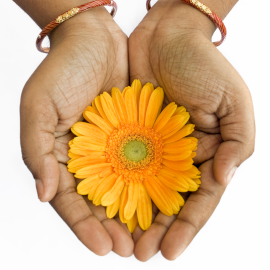From NPR, read the whole article when you have time to absorb these four stories
Stories of individuals are sometimes the most powerful of all; whether for hope or for despair. Here four people (two Palestinian, two Jewish Israeli) share their stories of individual loss and grief and also share why and how they still hope – and what actions they take on a day-to-day basis. A few excerpts are below to give you a small sense of the depth of this article but do read it all when you have time to take the stories in.
“I was crying, and I’m still crying, for all the innocent victims from both sides that will die,” he says. “And I’m crying for this 100 years of bloodshed, of cycle of death.”
Inon says that this cycle can seem endless, but he has hope. “It seems like there is no solution,” he says, “but there is.”
[] in one of Leshem’s research studies, he shows that Jewish Israelis and Palestinians consistently underestimate the other group’s hope for peace. In addition, he says, “this underestimation actually reduces one’s own hope.” […] In support of that argument, in an article in Foreign Affairs, two authors affiliated with Arab Barometer, a nonpartisan group that evaluates public opinion across the Arab world, point out that in a survey of Palestinians days before the war began, “73% of Gazans favored a peaceful settlement to the Israeli-Palestinian conflict.” And two-thirds of those surveyed expressed little or no trust in Hamas.
Leshem also says that even a glimmer of hope can make a difference when things are at their bleakest.
“Think about a small flame of a candle,” he suggests. “If the room is lit with daylight, then the light from this small candle doesn’t really influence anything. But when the room is dark, then suddenly the light of the candle has some meaning.”
[Bashir’s] father drew on the Quran. “Never let hatred for any people lead you to deviate from being just to them,” he quoted in Arabic.
Bashir says his father told him “it is one thing to lose one’s home and one’s land and even a loved one. But it is another thing — the most tragic thing — when one loses their humanity.”

